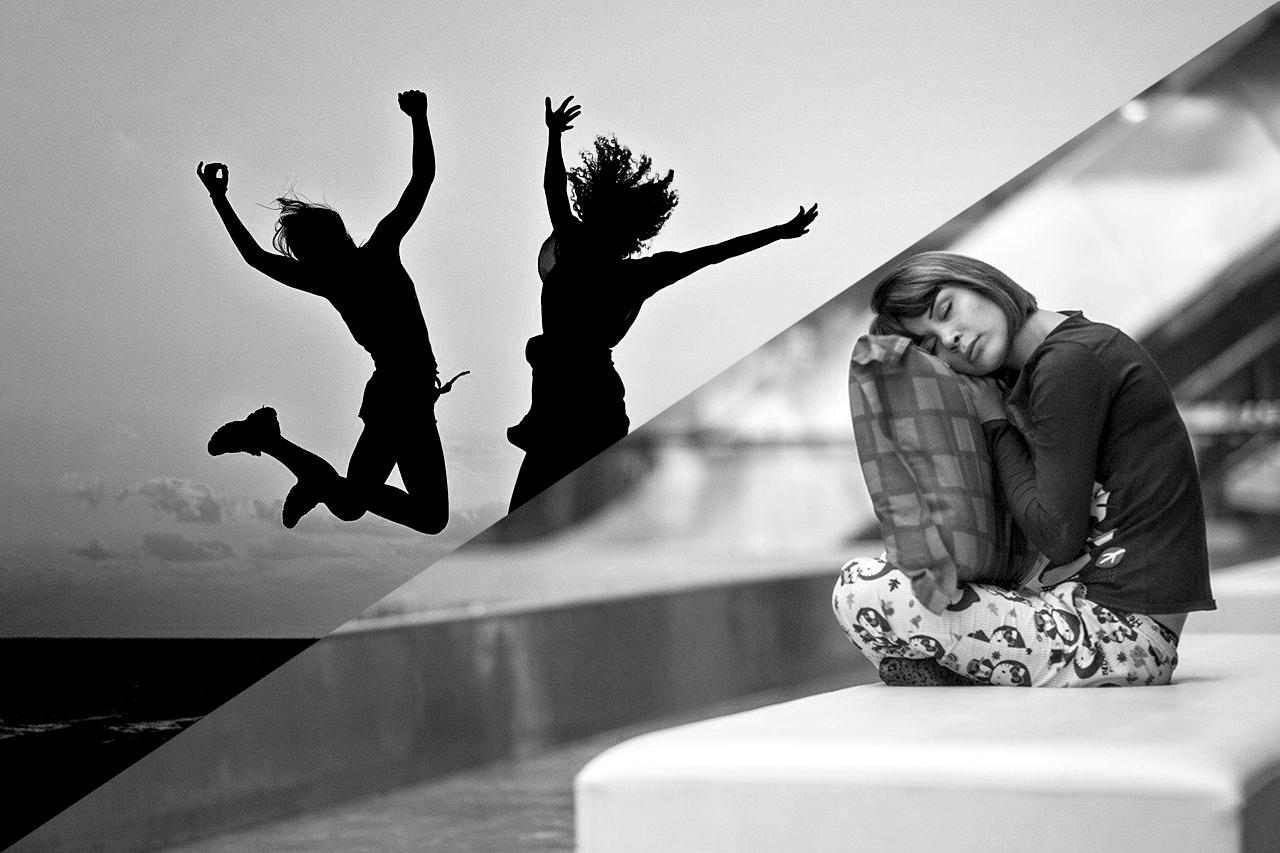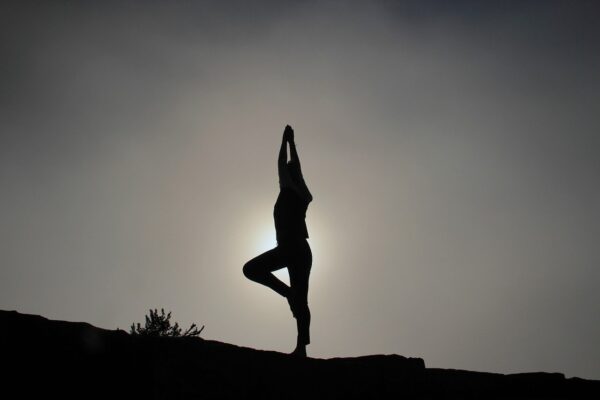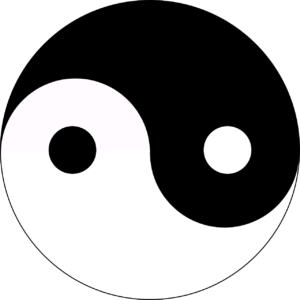
Qigong practice has some unusual qualities compared to other types of exercise. Within qigong practice we specifically focus on working with our energy in sometimes subtle ways. Often the practices are quite gentle and relaxed, leading the practitioner to actually feel more energized after doing them than they did before they started. So it can come as a surprise when a practitioner sometimes finds themselves feeling tired after doing a particular qigong practice – particularly if the practice does not require a lot of physical movement or exertion. In this article we will explore some of the ways that qigong practices can energize us, and also some of the ways that they can tire us, and whether this is a good or a bad thing.
Ways that qigong can energize us
To be fully healthy and vital we need to have sufficient energy, the right balance of energy, and our energy needs to be able to flow freely to every part of our body. The absence of any of these conditions can lead to suboptimal health and feelings of tiredness. Aspects of qigong practice focus on each of these areas.
Sometimes a practice may use gentle movements to open and balance our posture so the energy can flow freely and to stimulate this circulation. While the physical movements require some level of exertion, the effect of the increased ease of energy flow outweighs this. Opening up the posture releases some of the internal resistance to energy flow and the net result is that you feel more energized.

Some practices may also focus quite directly on taking in fresh energy. Between Heaven and Earth is a good example of this. Within this practice we activate the circulation of each of the extraordinary meridians as preparation to allow ourselves to connect more easily to the energy of Earth below and Heaven above, and to allow this energy to flow through us. When we connect to this energy and allow it to flow through, it has a cleansing and renewing effect. It releases stale energy that we do not need any more and allows us to replace it with new fresh energy.
Simply bringing balance to the different qualities of our energy can also leave us feeling more energized. If we have too much yin energy and not enough yang, this can leave us feeling sluggish. Simply activating some of that yin energy and converting it to yang can remedy this, without necessarily taking new energy in. Similarly having too much yang without enough yin can leave you feeling active but not supported and maybe burnt out. A similar situation exists with each of the five elements. We may have plenty of energy overall, but if we have an excess of one, or deficiency of another, this stops our energy from functioning harmoniously. When we rebalance these qualities, our energy can move more easily through its natural phases, restoring health, vitality, and a sense of energy.
This makes qigong a bit unusual and different from other types of exercise in that often people will practice it to feel more energized rather than as a way of ‘using up’ their energy. But… on deeper analysis maybe they are not so different in some respects.
Ways that qigong can tire us
Not all qigong practices are slow and gentle. Some qigong practices make use of vigorous movements and challenging postures. This type of practice is often used to circulate the energy more strongly and even to discharge stale or excess energy. In the right context these practices have a very beneficial effect on our health and wellbeing because they help us with the process of removing blockages and rebalancing our energy as described above. When excess energy or stale energy is discharged it opens the way for fresh energy to flow through and balance to be restored – the methodology is just different from some of the more gentle practices. These more active methods can work together in complementary ways with more gentle practices. The slower and more gentle practices working to gather and build up the energy, and the faster and more strenuous practices working to actively circulate and release excess energy. This harmonious operation of the principles of yin and yang together often leading to more beneficial results than just following a yin or a yang approach alone.

When practicing these more strenuous and active types of qigong exercises, it is not so surprising to feel some degree of tiredness after practice – we expect it because of the obvious physical exertion required within the practices. But what about feeling tired after doing a very gentle qigong practice, or one that requires no physical movement at all?
Gong means work or skill
The word qigong is made up of two parts, ‘qi’ – which means energy, and ‘gong’ – which means work or skill, so in practicing qigong we work with our energy and develop skill with it. It is useful to remember that working with our energy often actually involves real ‘work’ or exertion.
The main tools we most often use in working with our energy are our mind, our body, and our breath. When considering the level of exertion used in a particular practice, there can be a tendency for new practitioners to focus just on how active the body is in movements or maintaining a posture, but… there are many other factors at play as well. Some qigong practices are directed primarily using the mind, but the mind, body and breath are never truly separate, when we work with the mind there is always a flow on effect to the other aspects of our body. Directing energy with our mind not only requires exertion from our mind, it will also often lead to responses within the body that will require some level of effort – even if the effort is not as obvious as physically moving the body. As we direct energy with our mind this may cause responses such as increased nerve activity, stimulation and release of hormones, changing levels of activity in organs and tissues, increased circulation of blood, and so on. All of these require some degree of real ‘work’ or effort, and depending on how used to doing these specific kinds of ‘work’ you are, can lead to tiredness in much the same way as physically moving your body can. This is why practitioners may sometimes find themselves feeling tired from practicing a still meditation, even when there is no obvious physical movement included in the practice.

The good news is that this kind of tiredness works in much the same way as the tiredness we may feel from some other kind of physical exercise. As we continue to practice we adapt and become stronger. Strength within our body is not just a matter of how strong our muscles are, the strength of our nerves, organs, hormonal functions, and so on are also essential to our overall vitality. By working with these we develop more skill with them, these functions become ‘fitter’, stronger, and we develop more endurance in working with them.
Comparing qigong to going for a run…
Again, while it is working with other functions of the body, you can think of this process as being much the same as occurs in other kinds of exercise. When first starting to run as an exercise, you may quickly become tired and fatigued. But as you continue to run on a regular basis, your body adapts, and your ability to run further, faster, and longer increases. After some time you will even find that going out for a run actually leaves you feeling energized afterwards rather than tired, because your bodies capacity to handle the demands of the activity have increased, and the positive effects of stimulating the body start to outweigh the exertion required.

The flip side of this is also relevant to our qigong practice. In recognizing that the work we do in directing our energy is real ‘work’, we also need to be practical and realistic about our capabilities to do this ‘work’ at any point in time. Just as going out and running a marathon with no preparation may lead to harmful outcomes, pushing ourselves too hard, or attempting qigong practices or meditations that are too advanced may not be helpful to us either. If we find ourselves becoming too tired, we may need to take a step back and practice more gently, maybe practicing for shorter periods of time, or even putting a particular practice aside for awhile and coming back to it when we have done more preparation by developing our ability in more foundational skills further first.
Should qigong exercises energize us or tire us?
So, to answer the question posed in the title of this article. Sometimes qigong exercises will energize us, and other times they may tire us. Becoming tired from a qigong exercise is not a problem in and of itself, but we should be mindful of our capabilities as we practice so that we can do so in a way that will be ultimately beneficial to us. Becoming tired is a natural consequence of finding the edges of our current capabilities and working to extend them, but we should be cautious to not overexert ourselves in this process. When we listen to our body and energy, we can find a balance between nurturing ourselves to build up our energy, and challenging ourselves to develop further skill and greater capabilities within our practice.
If you are new to qigong you might like to explore our free Introduction to Qigong Theory and Practice course, to get a better understanding of the history, benefits, and underlying principles of qigong, to help guide you in your practice.
You can also find some videos of practices you might like to try here.
We also have lots of articles on different topics relating to qigong which you can find here, and if you would like to stay up to date with our latest articles and announcements, you can subscribe to our email newsletter below.